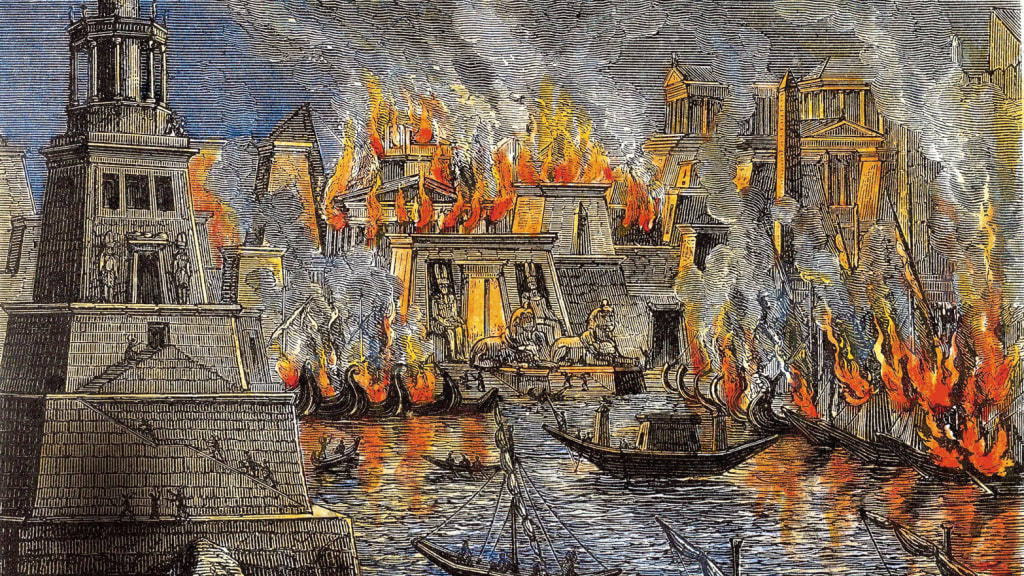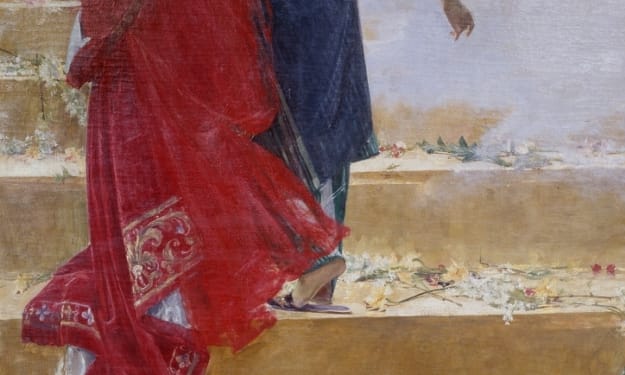The Library of Alexandria: A Lost Oasis of Knowledge
The Vanished Treasures: Tracing the Fate of the Library of Alexandria

I. The establishment and significance of the Library of Alexandria
In the third century BCE, the city of Alexandria in Egypt stood as a beacon of intellectual enlightenment. At the heart of this flourishing center of learning was the legendary Library of Alexandria, a grand institution that housed an awe-inspiring collection of ancient literature. Established by Ptolemy I, it quickly became the most renowned library of the ancient world, attracting scholars, philosophers, and thinkers from far and wide.
The Library of Alexandria was not merely a repository of books; it was a symbol of human intellectual achievement. Its mission was to gather and preserve knowledge from across the known world, making it a melting pot of diverse ideas and cultures. Scholars flocked to Alexandria to study, translate, and create new works, fostering a vibrant intellectual atmosphere that influenced the course of human history.
Within the library's hallowed halls, countless scrolls, manuscripts, and texts were meticulously collected. Scholars estimate that the library housed hundreds of thousands of written works, ranging from scientific treatises to epic poems and philosophical treatises. The vastness of the collection ensured that visitors could immerse themselves in a wealth of knowledge from various disciplines, including astronomy, mathematics, philosophy, history, and literature.
II. Fires, invasions, and the eventual destruction of the library
However, the Library of Alexandria was not immune to the ravages of time and human conflict. Despite its significance as a center of learning, it faced repeated challenges throughout its existence. The first major setback occurred during the reign of Julius Caesar, when a fire broke out in the city and engulfed a portion of the library, resulting in significant losses of precious works. This event foreshadowed the devastating fate that awaited the library in the future.
The most catastrophic blow to the Library of Alexandria came during the Roman Empire's conquest of Egypt. In 391 CE, Emperor Theodosius I ordered the closure and destruction of pagan temples and centers of knowledge, targeting the library as well. Accounts vary, but it is believed that the library suffered extensive damage, including fires and deliberate acts of destruction. The loss of countless irreplaceable works reverberated through history, creating an unfathomable void in our understanding of ancient civilizations.
III. The estimated loss and impact on various fields of knowledge
The destruction of the Library of Alexandria had far-reaching consequences. The loss of invaluable texts by renowned thinkers such as Aristotle, Sappho, and Euclid hampered the development of numerous fields of knowledge. The impact extended beyond philosophy and literature, affecting disciplines as diverse as mathematics, astronomy, medicine, and engineering. The extent of the loss remains a subject of ongoing speculation, as many works that were once considered common knowledge have been forever consigned to the annals of history.
IV. The enduring mystery surrounding the surviving remnants
The fate of the surviving remnants of the Library of Alexandria is a mystery that has puzzled scholars for centuries. Some believe that the library's collection was completely destroyed, while others believe that some of the books and scrolls may have survived.
There is some evidence to support both of these theories. For example, there are accounts of scholars from the Roman Empire who visited Alexandria and found that the library was in ruins. However, there are also accounts of scholars who found books and scrolls from the library in other libraries and collections.
The most likely explanation is that some of the library's collection was destroyed, while other parts of the collection were dispersed to other libraries and collections. It is possible that some of the library's collection may still exist today, but it is also possible that it has been lost forever.
The mystery surrounding the surviving remnants of the Library of Alexandria is a reminder of the fragility of knowledge. The library was one of the greatest repositories of knowledge in the ancient world, and its destruction was a major loss to humanity. It is important to remember this loss and to work to preserve knowledge so that it can be passed on to future generations.
V. Conclusion
The Library of Alexandria was a truly remarkable institution. It was a center of learning and research that played a major role in the development of Greek and Hellenistic culture. The library's destruction was a major loss to the world of knowledge. However, the library's legacy lives on. The library's name is often used as a symbol of the importance of knowledge and the need to preserve it.
Today, the Library of Alexandria stands as a symbolic reminder of the fragility of human knowledge and the catastrophic consequences of its destruction. Efforts to revive the library in modern times, such as the Bibliotheca Alexandrina, strive to honor its legacy and serve as a beacon of knowledge once again. However, the magnitude of the original library's collection and the insights it held may forever remain lost, leaving us to wonder about the unimaginable treasures that once graced its shelves.
The Library of Alexandria will forever serve as a poignant reminder of the precarious nature of preserving our intellectual heritage. It stands as a testament to the importance of valuing and safeguarding ancient literature, recognizing that the loss of even a single manuscript represents an irreversible blow to our collective understanding of the past. As we navigate the challenges of preserving our cultural heritage, we must strive to protect and celebrate the legacies left to us by the great minds of antiquity, ensuring that their wisdom continues to inspire and enlighten future generations.
About the Creator
Huzaifa Mehmood
I am not much of a writer just an engineer who is fond of a lot of things and likes to write about them. I love reading and literature. Bit of a romantic and a big history enthusiast. I like cars, F1 and racing as much as i like cooking.
Enjoyed the story? Support the Creator.
Subscribe for free to receive all their stories in your feed. You could also pledge your support or give them a one-off tip, letting them know you appreciate their work.






Comments
There are no comments for this story
Be the first to respond and start the conversation.